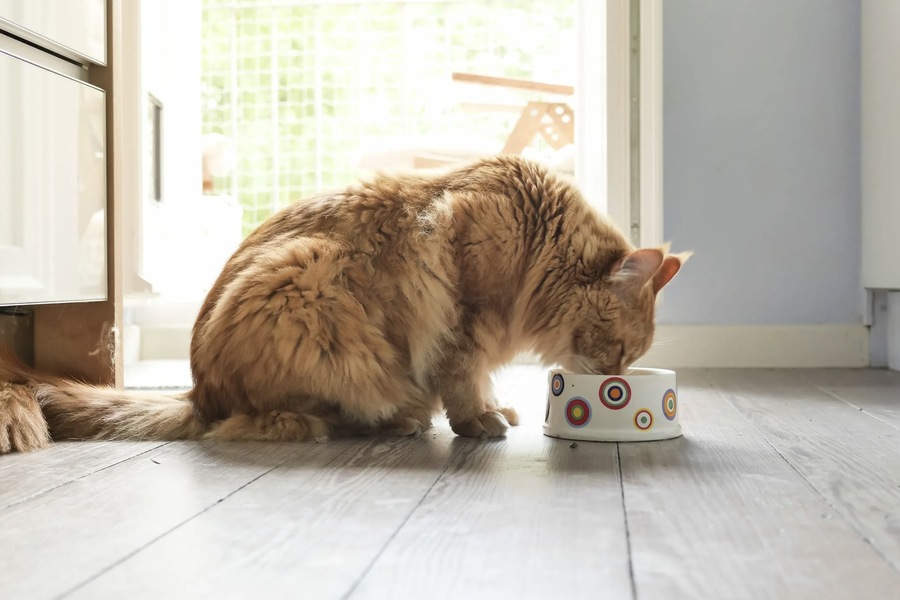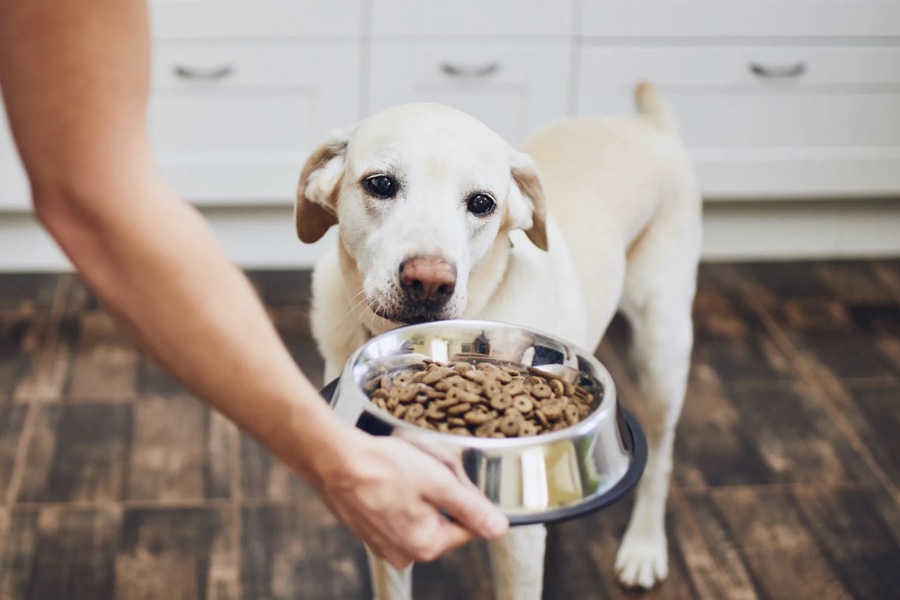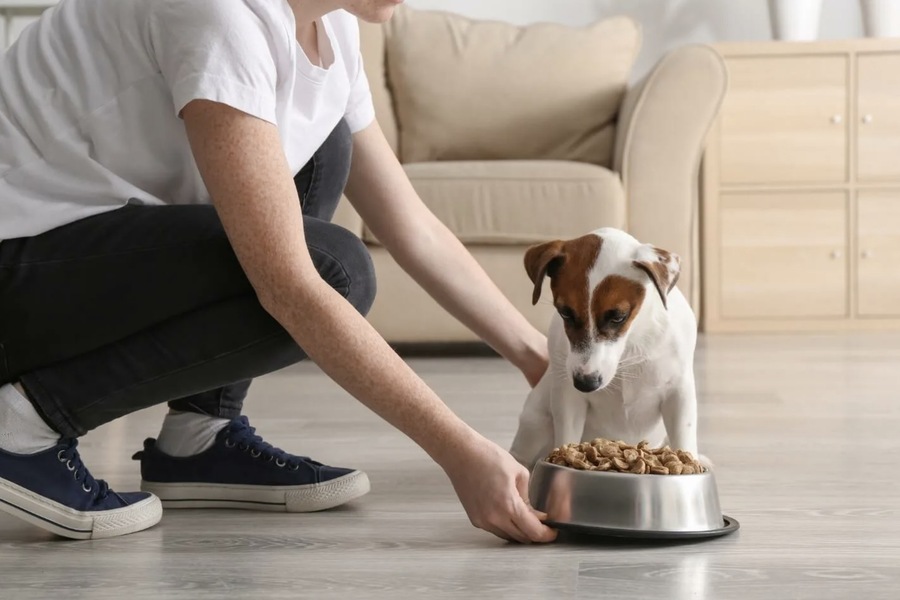Dubai’s climate, characterized by extreme heat and humidity, poses unique challenges for pet owners. Proper nutrition and hydration are essential for ensuring that pets stay healthy and comfortable during the hottest months of the year. Adjusting their diets to meet the demands of this environment is crucial, as it helps prevent dehydration, heat exhaustion, and other heat-related health issues. This article explores how pet owners can adapt their pets’ diets to the hot weather in Dubai, ensuring their animals remain healthy despite the challenging conditions.
Understanding the Impact of Hot Weather on Pets
In Dubai, temperatures can rise above 40°C (104°F) during the summer months, and the heat can take a significant toll on pets, especially dogs and cats. Pets cannot cool themselves as efficiently as humans, and they rely heavily on panting and external cooling methods to regulate their body temperature. This makes them more susceptible to heat exhaustion and dehydration, particularly when their diet does not meet their specific needs in such conditions.
One of the most significant risks during hot weather is dehydration. Pets lose water through panting, and if they do not consume enough fluids, they can become dehydrated quickly. Dehydration can lead to reduced organ function, digestive problems, and general weakness, all of which can severely impact the pet’s health.
The Role of Hydration in Pet Diets
Proper hydration is the cornerstone of keeping pets healthy during the hot months. Fresh, clean water should always be available for pets, especially when they are outdoors. It is essential to monitor water intake closely, as pets often require more fluids during the summer. While water is the primary source of hydration, wet foods can play an important role in helping pets stay hydrated. Wet dog and cat foods contain a significant amount of moisture and can help supplement their fluid intake.
For example, dogs and cats on a dry kibble diet may not get enough water from their food alone. Adding wet food or incorporating homemade broths can increase their hydration levels. Additionally, some pet owners opt for frozen treats, such as ice cubes made from pet-safe ingredients, to help cool their pets and encourage water consumption.

Adjusting the Nutrient Composition of Pet Diets
As temperatures rise, pets may require adjustments to their diets to ensure they are getting the right balance of nutrients. During hot weather, pets can become lethargic and may have a reduced appetite, which can lead to nutrient deficiencies if not managed properly. The following considerations are essential for maintaining a balanced diet during hot weather:
Proteins: While protein is essential for muscle maintenance and overall health, excessive amounts of high-fat proteins can increase the metabolic heat produced during digestion, potentially exacerbating the effects of the heat. Consider offering leaner proteins such as chicken or turkey instead of fattier cuts of meat to help reduce the strain on your pet’s metabolism.
Fats: Though fat provides necessary energy for pets, high-fat diets can make it harder for them to regulate their body temperature in extreme heat. Adjusting fat content slightly during the summer months can help keep pets comfortable without compromising their energy levels. Look for lower-fat pet food options that still provide essential nutrients.
Carbohydrates: Complex carbohydrates, such as those found in high-quality pet foods, provide energy and support digestive health. In Dubai’s hot climate, it’s important to ensure that pets are receiving easily digestible carbohydrates, as this can reduce the amount of energy their body expends on digestion.
Foods to Avoid in Hot Weather
Some foods can exacerbate the effects of heat on pets, particularly those that are high in salt or difficult to digest. Salty snacks, processed foods, and foods with high-fat content can lead to increased thirst and dehydration. Additionally, heavy meals that take longer to digest can raise a pet’s internal temperature, making it more difficult for them to cool down.
In Dubai, it is essential to avoid feeding pets leftovers or human food that is not specifically prepared for them, as these foods may contain ingredients that are unsuitable for animals and can contribute to digestive issues in the heat. Furthermore, overly rich or greasy foods can lead to gastrointestinal distress, which is more dangerous in high temperatures.
Feeding Frequency and Portion Sizes
The timing and size of meals can also have a significant impact on how pets cope with the heat. During the hottest parts of the day, pets may have a reduced appetite, so feeding them smaller, more frequent meals can help ensure they get enough nutrition without feeling uncomfortable. Offering food during the cooler parts of the day, such as early in the morning or late in the evening, can also encourage pets to eat more.
Adjusting portion sizes during the summer can also prevent pets from overeating, as their activity levels may decrease in response to the heat. Pets should not be overfed in the summer, as this can lead to weight gain, which further increases the risk of heat exhaustion.
The Importance of Wet Foods and Fresh Ingredients
In hot climates like Dubai, incorporating wet foods and fresh ingredients into a pet’s diet can help alleviate some of the challenges that come with feeding in the heat. Wet food, which contains up to 80% moisture, is an excellent way to boost hydration levels while still providing essential nutrients. Adding fresh vegetables, such as cucumber and zucchini, to a dog or cat’s diet can also provide additional water content and fiber, which supports digestive health.
It’s important to choose wet foods that are specifically formulated for pets, as they are designed to meet their unique dietary needs. Pet owners in Dubai can explore options from providers like Eurovets, which offers high-quality wet food solutions that are ideal for keeping pets hydrated during the hotter months.
Treats and Supplements for Hot Weather
Treats can be an excellent way to supplement a pet’s diet in hot weather, especially if they contain ingredients that help with hydration. Frozen treats made from water-rich vegetables or pet-safe broths can provide additional fluids while keeping pets cool. It’s also possible to find hydration supplements that can be mixed with water or food to encourage better fluid intake.
In Dubai, some pet owners opt for electrolyte supplements designed for pets, which help replenish essential minerals lost through sweating and panting. These supplements ensure that pets maintain their hydration and electrolyte balance even in the most extreme temperatures.

Ensuring Proper Storage of Pet Food in Hot Weather
Pet food storage becomes a crucial consideration in Dubai’s hot climate, as high temperatures can cause food to spoil more quickly. Dry kibble, wet food, and fresh ingredients must all be stored properly to ensure that they remain safe and nutritious for pets.
Dry food should be kept in a cool, dry place and stored in airtight containers to prevent exposure to moisture and pests. Wet food, once opened, must be refrigerated and consumed within a few days to avoid spoilage. For those feeding fresh or homemade foods, it’s essential to store ingredients properly and ensure they are served fresh, particularly during the summer months when bacteria can grow more rapidly.
Consulting with Veterinarians
Adjusting a pet’s diet in response to Dubai’s climate should always be done in consultation with a veterinarian. Each pet has unique dietary needs, and making changes without professional advice can lead to unintended health consequences. Veterinarians can provide specific recommendations on the type of food, portion sizes, and hydration strategies that best suit a pet’s breed, size, and health status.
Conclusion
Feeding pets in Dubai’s hot climate requires careful attention to their hydration and nutritional needs. Adjusting diets to include more moisture-rich foods, providing clean water at all times, and choosing nutrient-dense, easily digestible foods can help pets stay healthy and comfortable during the hottest months of the year. Pet owners must remain vigilant about feeding schedules, portion sizes, and the type of food offered to ensure that their pets can cope with the unique environmental challenges of living in Dubai.

